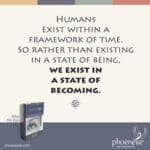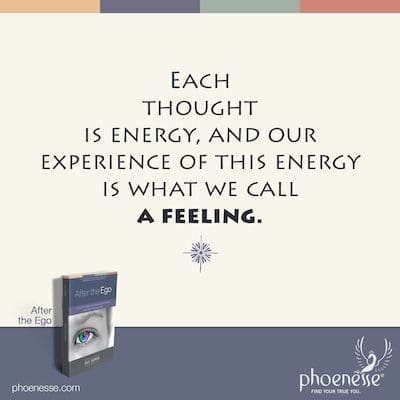
In this dualistic dimension, we speak of states of consciousness and energy as though they are two distinct things. But this is not correct. To start with, it’s important to realize that consciousness permeates everything in all of creation. So all energy contains some variety and degree of consciousness. That said, consciousness is what creates energy. In fact, the energy of direct consciousness—the energy of our thoughts, feelings, intentions, attitudes and beliefs—eclipses, by far, any other kind of energy, whether electrical, physical, biological or atomic.
Each thought then is energy, and our experience of this energy is what we call a feeling. So there can be no thought—not even the most sterile, cut-off thought—that doesn’t also contain a feeling. We can imagine that a very pure, abstract thought might be completely divorced from any feeling content, but this is not the case. In reality, it’s just the opposite. The more pure and abstract a thought is, the more feeling must be attached to it.
Actually, we need to parse the difference between an abstract thought and one that is cut off. We need to not confuse the two. An abstract thought comes from a spiritual state that is highly integrated. A cut-off thought is a defense against feelings and parts of the self we think are undesirable.
But even the most cut off thought can never be totally devoid of feeling, or energetic content. Beneath the surface there may be a feeling of fear or apprehension—some sort of anxiety about something the person hopes to avoid. And when such feelings are present, self-hate is usually also part of the package.
Below the surface of a purely abstract thought there will be an energy current—a feeling—of utter peace. This comes from the inherent understanding of spiritual laws that connect to the thought, and are therefore sure to produce joy. A more subjective thought is less pure. So the more subjective a thought is, the more it will contain negative feelings.
What exactly is a subjective thought? It is a thought that comes from our personal desires and personal fears. It comes from our ego, the separated state that believes it is me versus the other. Such a thought, then, is not in truth.
Listen and learn more.



